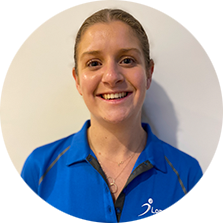Ask Annabel… “I don’t have time to exercise”: Is it a Myth or Reality?
“I don’t have enough time to exercise” is one of the most common reasons people use to justify why they cannot participate in exercise.
But is being too busy to exercise a genuine problem or just an excuse? The real reason people aren’t working towards their health and fitness goals isn’t because they don’t have the time, they usually don’t participate in physical activity because it isn’t important enough to them.
Today, Annabel and the Longevity Exercise Physiology teams at Drummoyne, Edgecliff, Marrickville, Bella Vista, Randwick, Pymble, Balmain and Neutral Bay discuss the role of time and the reasons why we should focus on exercise being a part of our everyday lives.

Essentially, we all have the same amount of time in the day as each other and our behaviour during the day is a reflection of what is important to us. During the day we make time for the things we want to do. Understandably, most individuals lead hectic lives and have the need to juggle several important tasks. On average, 21% of all waking hours over a 76-year lifespan are spent at work which is a really big chunk out of your time. It is necessary to prioritise these responsibilities if they are important to you. Now, think about if losing weight or staying fit and healthy was your goal. Would participating in exercise now be a priority to you (“I don’t have time to exercise”: Myth or reality? Craig Parnham, 2022)?
“On average, 21% of all waking hours over a 76-year lifespan are spent at work…”
Your priorities, whether you say so or not, are where you choose to spend those hours. Make the most of them! It’s amazing how much time you can find when you minimize the things that aren’t important to make room for the things that are. Just like keeping a food journal can be eye-opening, try tracking your time over the next few days in 30-minute blocks. How much time do you spend on the computer, watching TV, etc? I bet you’ll be surprised. Suddenly…wild productivity appears! The 10 hours of TV each week become less important. The late nights on Facebook become more apparent. The unproductive hours spent sitting at your desk, “working” without actually working become clear (Nazish, 2022).

The key to incorporating exercise into that tight schedule of yours is, starting small. A study conducted by Dr. David Hupin showed that even 15 minutes of light activity can improve your health and longevity. According to the Centres for Disease Control and Prevention, several 10-minute workouts are just as effective as a longer duration workout – as long as they add up to 150 minutes of physical activity a week (Why we should exercise – and why we don’t – Harvard Health, 2022).

Something to factor into this is that exercise doesn’t need to be your number one priority, but if you want to achieve your health and fitness goals it should be one of them. If you can make space in your day for even 5 minutes of exercise. Think about your priorities in terms of big rocks (important things you can’t miss) and little rocks (less important things) and a way to implement these into your everyday life (Kaur, Singh, Arya and Mittal, 2020).
If you are struggling to find time to fit exercise into your daily routine give Longevity Exercise Physiology Edgecliff, Pymble, Marrickville, Randwick, Drummoyne, Balmain, Bella Vista, Neutral Bay and Coburg, Melbourne a call on 1300 964 002 to book in a session today.
We can help you make exercise one of your top priorities!

Written by Annabel Bergman
References:
Craig Parnham. 2022. “I don’t have time to exercise”: Myth or reality? | Craig Parnham. [online] Available at: <https://www.craigparnham.com/article/i-dont-have-time-to-exercise-myth-or-reality> [Accessed 8 June 2022].
Nazish, N., 2022. How To Make Time For Exercise—Even When You’re Super Busy. [online] Forbes. Available at: <https://www.forbes.com/sites/nomanazish/2020/02/28/how-to-make-time-for-exercise-even-when-youre-super-busy/?sh=15b7f511fb60> [Accessed 8 June 2022].
Kaur, H., Singh, T., Arya, Y. and Mittal, S., 2020. Physical Fitness and Exercise During the COVID-19 Pandemic: A Qualitative Enquiry. Frontiers in Psychology, 11.
Harvard Health. 2022. Why we should exercise – and why we don’t – Harvard Health. [online] Available at: <https://www.health.harvard.edu/newsletter_article/why-we-should-exercise-and-why-we-dont> [Accessed 8 June 2022].
